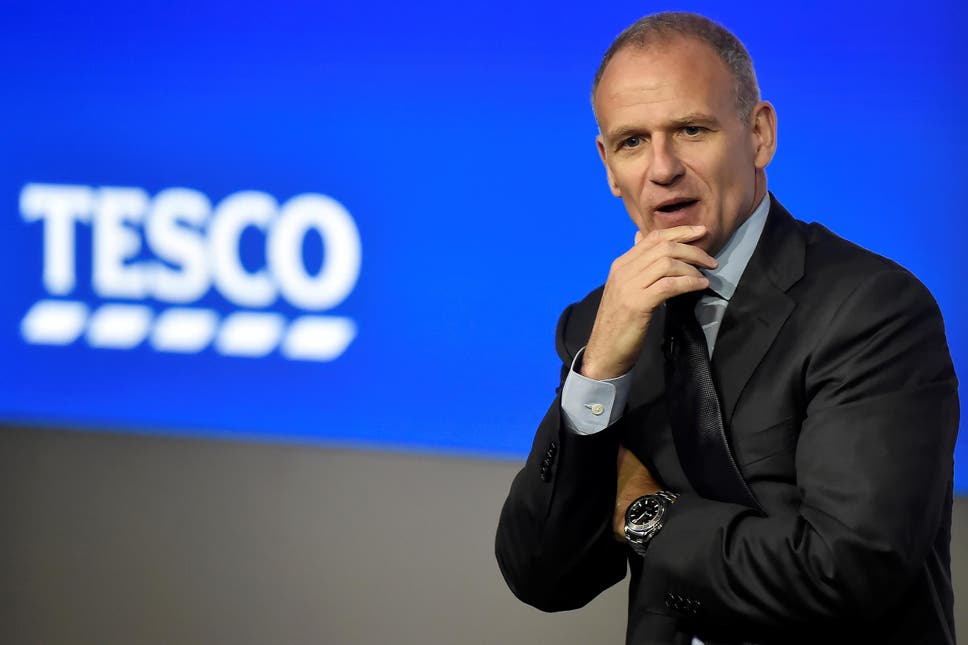Bumper pay packets for bosses at UK's largest firms show we really aren't all in it together
The two bodies that published the report say companies risk undermining the solidarity created by the pandemic and call for reforms to pay setting remuneration committees. It's worth a try, says James Moore


Who fed the nation during lockdown? Was it outgoing Tesco boss David Lewis, who hauled in £6.42m - a 33 per cent increase over the previous year? Or was it the Tesco staff who put themselves at risk by turning up to work every day where they were handed T-shirts bearing the legend “we’re in this together”.
We clearly aren’t, as a report covering CEO pay from the Chartered Institute of Personnel & Development (CIPD) and the High Pay Centre makes very clear.
The 2019 median average of £3.6m for CEOs was flat, but still represents 120 times what the average worker made. Only a minority - 36 - of FTSE 100 companies have announced cuts to executive pay in response to the Covid-19 crisis.
But the report brands these as “superficial or short-term”. The most common measure, taken by 14 companies, has been to cut salaries at the top by 20 per cent.
However, the higher up the corporate ladder you climb, the less important your basic salary becomes in comparison to bonuses, long term incentive schemes, pension contributions and other sweeties.
Some 11 have cancelled short term incentive plans - so bonuses - while two deferred pay rises. None have done anything to address Long Term Incentive Plans (LTIPs).
These share based payments - which aren’t typically very long term - are the running sore of the executive remuneration world.
They typically make up half the total, and sometimes it’s more. They are also subject to any number of wheezes such as tweaking the conditions to make it easier for CEOs get paid if their company's share price takes a bath, or issuing them when the shares are in a trough, as they were when the pandemic first hit, so they're sure to cash in.

It bears repeating that many workers have also endured pay cuts, which they will find far harder to bear, if they haven’t been put on furlough or lost their jobs entirely.
The report says that ultra high CEO pay “risks undermining the spirit of solidarity that many companies are trying to project as they battle against the impact of the coronavirus”.
That, of course, is a statement of the bleedin’ obvious. But it bears repeating given the bubbles corporate executives tend to live in.
It goes on to argue that the current economic uncertainty should encourage companies to consider whether the scale of pay awards reflect good business sense and a CEO’s individual contribution to a company’s success.
Trouble is, it’s been long established, and constantly repeated, that sky-high CEO pay fails to deliver improvement in either corporate or economic performance. It has a tendency to demotivate workers, on whose performance businesses success rests and, given the structure of lucrative share based awards, promotes a focus on short term share price performance over long term success.
These packages made no business sense during previous downturns, the financial crisis for example. But nor did they make any sense during previous upturns.
The report concludes that the relatively small cuts to pay that CEOs have accepted to date show a lack of engagement with the issue in the boardroom. Hardly a surprise. But how do we solve this seemingly intractable problem?
The CIPD and High Pay Centre say it’s time to reform corporate remuneration committees to ensure CEO pay awards “are fair, proportionate and assessed in a way more reflective of the pay of the wider workforce is determined”.
Given the preponderance of former CEOs, bankers and others who have profited from a rigged system, sitting on them, this is a worthwhile line of attack.
The other measures that have been tried - notably giving shareholders more of a say on bosses pay - have run into the unwillingness of big institutional investors to use the votes they have in their own best interests.
The growing influence of US fund managers over the UK market, highlighted by this column earlier this week, will not help with that situation given their tolerance for the absurd awards that are commonplace across the Atlantic.
So maybe forcing a change to the composition of RemCos will work the oracle, not to mention furthering shareholders’ interests. It's surely worth trying.
Change could potentially be forced via reforming Britain’s corporate governance regime. But it might take a change of government for that to happen.
Join our commenting forum
Join thought-provoking conversations, follow other Independent readers and see their replies
Comments